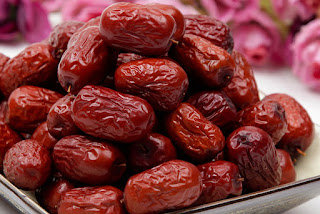The holy month of Ramadhan has finally arrived. From the religious side, the holy month is a chance to reflect on your sins from the past and start doing better things. On the other hand, it is also a chance to make decisions for a healthier life.
Many people use Ramadhan as an excuse to go on a diet, and that's okay.
There are some things you need to know, though, to keep you fit and healthy during Ramadhan, as your eating habits will affect your entire day throughout the fasting month.
Three things: Complex carbohydrates, protein and fiber
Sahur (predawn meal) should be the focus of your attention Ramadhan to keep you strong during the fasting period.
Foods rich in complex carbohydrates, from red rice and wheat bread to vegetables and fruit, are some of the examples of sahur's main dishes. They are ideal because they will keep your stomach full for a longer time.
Make sure that you also prepare foods with high protein and fiber like meat and fish because they will also keep you full for longer.
Consuming foods that contain complex carbohydrate is good for you, keeping your stomach full for longer.
Don't warm up leftovers
It's common sense to eat leftover foods for sahur after buying too much the night before. Warming your food is not a good idea because the reheating process will reduce the amount of nutrients contained in the food.
A better idea is to wake up earlier for sahur, especially if you're on cooking duty.
Eating dates for iftar is very good for you
The theory of starting your iftar by eating sweet things is an old myth; some people believe it and some people don't.
This theory is accurate, as long as you eat healthy sweet foods to top up your energy with sugar after a long day of fasting. The best option for this is dates. Rich in fiber, potassium and magnesium, dates are an entirely reliable starter for iftar.
Avoid greasy snacks like gorengan
Around the world, dates are the first choice to start iftar. This also applies in Indonesia, but with tight competition from gorengan (deep fried snacks).With all due respect to all our favorite gorengan places, these snacks do not make a healthy iftar. Avoid salty and spicy foods for iftar and replace them with fresh foods like fruits and vegetables instead.
Do not eat more than you should
You're probably familiar with this habit. After a long wait, especially during the first week of Ramadhan, eating all the food you desire in the world sounds like an attainable dream. Iftar time comes and you do exactly what you dreamed of.
Sorry to crush the dream but, bad news, eating too much food is not good for you. Eating during Ramadhan is about quality, not quantity, and that applies both to iftar and sahur.
Stay hydrated
Water is important on a daily basis and it's even more important during Ramadhan. Stay hydrated by drinking plenty of water during iftar and sahur.
Drinking eight glasses of water throughout the night is the perfect amount to keep you hydrated during fasting time. (kes)
Source : http://www.thejakartapost.com/life/2016/06/07/a-simple-guide-to-healthy-eating-during-ramadhan.html

No comments:
Post a Comment